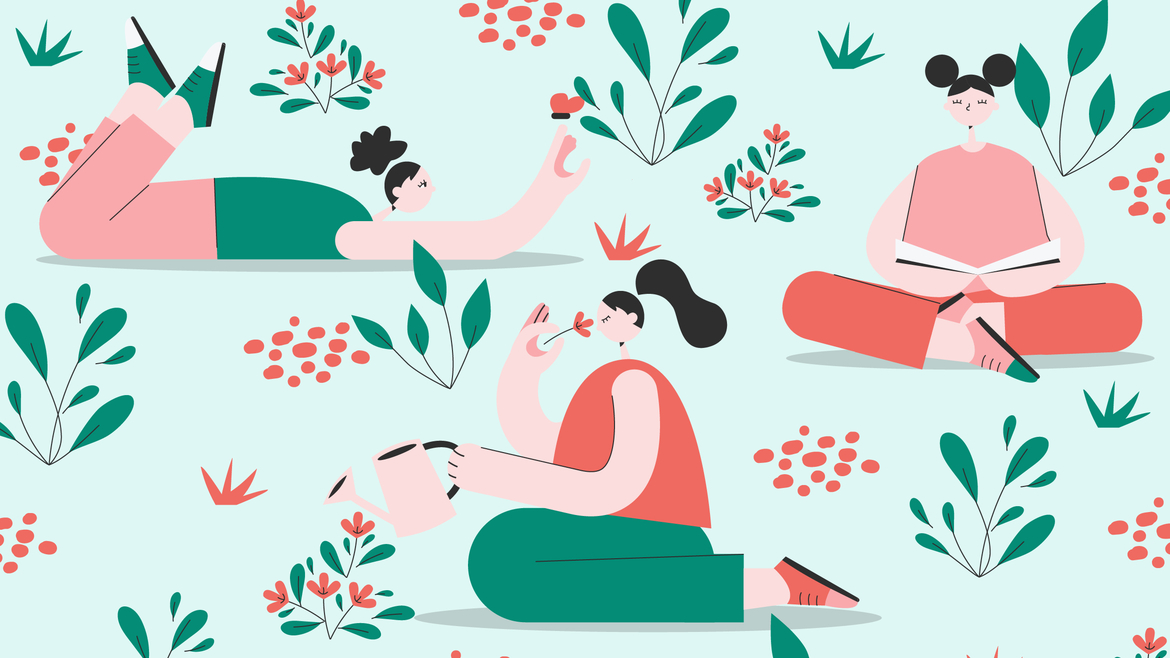BY MARIDEE ODAY
Maridee ODay lives with bipolar disorder. She is a single woman in her forties who grew up in Seattle, Washington and now lives in Phoenix, Arizona. She is a director of business systems, North America, for a leading outsourced business process provider called the DDC Group.
The hardest thing for me during this crisis is my fear that the world will never go back to normal. We will be less apt to be close to one another and less apt to hug or even shake hands. We were already seeing some of this behavior with technology—people sitting at a restaurant together and staring at their phones—but I’m afraid this will take things a step farther, and we’ll lose our use of human touch and connection altogether.
But maybe this fear is misplaced. Maybe we’ll get closer, even if it doesn’t mean hugging. It has been incredible to see things from earlier times come back. I’ve noticed more puzzles and board games than I remember seeing in a while. And I think when restrictions lift, there will be fewer people going to large festivals and a resurgence of small, intimate gatherings. I’ve spotted more neighbors—and even strangers—smiling and being kind to each other. It reminds me that people are strong and adaptable.
I wish the world understood that people with mental health conditions are strong and adaptable as well. We have an illness, but it’s just like any physical illness. With the right treatment and mental health management strategies, I’m fully capable of handling anything the world throws at me, including COVID-19.
Keep it simple
In the most difficult times, my strategies for coping were to get a lot of rest and frankly, be self-indulgent. I know that doesn’t sound like the best coping mechanism, but everything is relative. When my mental health challenges were at their worst, I didn’t want to be alive anymore. So eating good food, sleeping when I felt like it, and not feeling bad about what I was doing to take care of myself was what got me through.
Over time, I realized that I do better when my life is simple. I used to make a lot of commitments and feel bad about saying no. When I felt energetic, I sometimes promised too much. Then I would start to slow down a bit and I’d feel overwhelmed. That feeling would then shoot me into depression and I would have to cancel everything. But now, I don’t fill up my calendar and I make plans more spontaneously.
For this crisis, I continue to employ that strategy. I keep my schedule simple and I say no to things when I start to get too busy. I live alone, but I have a small, close group of friends that I am seeing. I try to finish up my activities early because it’s important that I keep my regular routine of going to bed early and waking up early. I also need my alone time to make sure I’m at peace and can manage my moods and anxiety.
For people who are struggling with COVID-19 now, it could help to not over-commit and do things that you enjoy with intention and focus. Don’t just go for a walk, go out and notice the flowers, the way the light filters through a tree. If you’re eating something, make sure you notice all the flavors. This mindfulness brings you out of your thoughts and into the present moment.

Get support from family and friends
Staying in touch with friends and family who know you well is important. One of the most noticeable symptoms of depression is that you think everything bad is going to last forever and that it’s happening everywhere to everyone. In this crisis, it is happening everywhere to everyone! But, when you’re depressed, you may think some of these things are your fault, and that it’s never going to end, which is never true.
I’m lucky because I have friends who will pick up on the things I say when I am dealing with depression and point out when I’m not sounding like myself. That gives me enough perspective to realize that I’m depressed and need to do something about it.
The best support someone can give is to be accepting and non-judgmental. I am not weak because I have a mental illness, and it is helpful when people offer their presence and support without offering advice. I am strong and I often know what I should do. But I will do it when I am ready and able. I am strong and I will be ok. I just need to feel people’s presence and know they’re there with me.
During this crisis, we can support each other this way. People are strong; we are adaptable. This crisis will not last forever and we will get through this. We humans will adjust to the new normal of what comes afterward and find happiness there as we always do.


One response to “We are Strong and Adaptable”
Very well written and communicated. I appreciate what you shared towards the end about having friends or family just listen to you and validate you by offering support without any judgement. True indeed. Thank you.